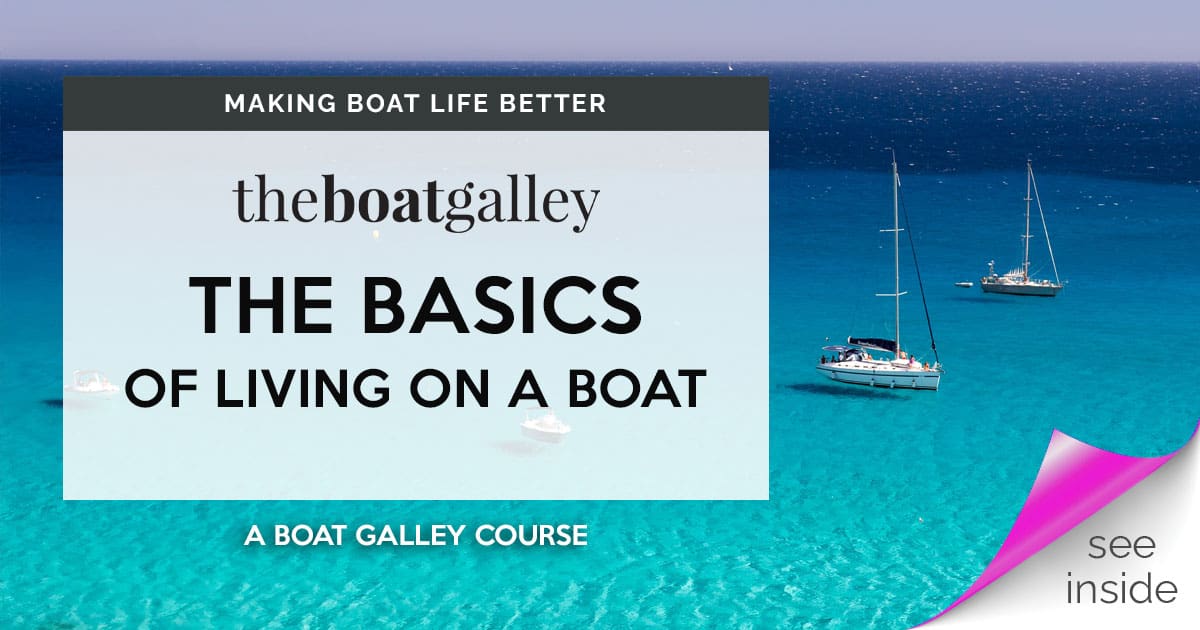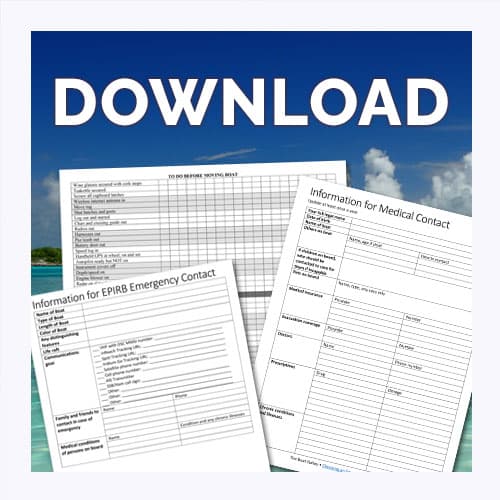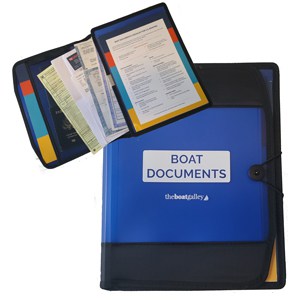
“I’m thinking of putting in an offer on this boat I’m looking at. What’s the rule of thumb for how much below the asking price I should offer?” What to offer for a boat is a big question.
Variations on this question get asked every day. I see them in Facebook groups for cruisers and aspiring cruisers, as well as getting emails asking for advice. The thing is, contrary to what many people will say, I don’t think there’s a rule of thumb for what to offer for a boat. I think every situation is different and you have to decide what the boat is worth to you.
How to Decide on Your Offer
I consider these eight factors in coming up with an offer, regardless of the size of the boat:
- How anxious the seller is to sell — already has another boat, can’t afford the payments, being sold by someone with no interest in the boat (heirs, or children of elderly parents who no longer can use it), moving to a different area . . . or is just “kinda thinking about selling and if I could l get this much, yeah, I’d sell . . . “?
- Is it already priced for a quick sale? (You may just offer the full asking price; we’ve done this a couple of times.)
- What condition is it in compared to the price? Is it a project boat (if so, and this will be your first boat, read this)?
- What equipment, spares and other gear (that’s worth keeping) does it have that similar boats don’t? Only count gear that you care about having and would install if the boat didn’t have!
- How helpful is the seller? Will they teach you the boat’s systems and idiosyncrasies? Will they make themselves available after the sale for questions? (This can be worth quite a bit!)
- What oddities does the boat have that might make it less attractive to someone else? Are they already reflected in the price?
- What contingencies are you putting in the offer? Subject to financing vs. cash sale? Asking the seller to move it to a different location? Need a delayed closing? Subject to selling your old boat or house? (The more contingencies, generally the more money the seller will want to keep it off the market until the contingencies are met. Cash offers with no contingencies will get you the best deal.)
- How perfect is this boat for you? Are there really and truly no others like it? Would your heart be broken if you didn’t get it? (There are hundreds of thousands of boats for sale . . . unless it is truly unique, you’ll find another.)
Should You Use a Broker?
Theoretically, a buyer’s broker can help you recognize the signals. The reality is that even a buyer’s broker is being paid according to the selling price of the boat. There’s an inherent conflict of interest: you want to get it for the lowest possible price, they get more if you pay more. Good ones are a considerable help in the purchase process, but do your homework and make sure you have a good one.
Sometimes buying a boat through a broker can get a lower price as the seller’s broker can explain to the seller why your offer is a good one (or the best they’re likely to get in a reasonable time); sometimes you can get a better deal by talking with the seller directly, either sensing their eagerness to sell or demonstrating why they are the best possible new owners for their well-loved boat, even if their offer isn’t the highest.
In other words, there really aren’t any givens as to what you should offer. And if a broker tries to tell you of a “rule of thumb,” I’d be leery. Do your homework on similar boats. Think about the rest of the buy/sell situation. Come up with what you think is a reasonable number, and make sure it is well within your budget (you will almost certainly put more into initial repairs/upgrades than you expect, so it’s nice to have a little leeway in the budget).
Hopefully, you’ll arrive at a price that both you and the seller are comfortable with and soon you’ll own a new boat!
Read Next

Carolyn Shearlock has lived aboard full-time for 17 years, splitting her time between a Tayana 37 monohull and a Gemini 105 catamaran. She’s cruised over 14,000 miles, from Pacific Mexico and Central America to Florida and the Bahamas, gaining firsthand experience with the joys and challenges of life on the water.
Through The Boat Galley, Carolyn has helped thousands of people explore, prepare for, and enjoy life afloat. She shares her expertise as an instructor at Cruisers University, in leading boating publications, and through her bestselling book, The Boat Galley Cookbook. She is passionate about helping others embark on their liveaboard journey—making life on the water simpler, safer, and more enjoyable.
Here’s your “Quick Start” to everything you need to know when living on a boat:











Mark and Cindy - sv Cream Puff says
I think people should be wary of the seller’s broker. Remember, the seller’s broker is paid by the seller and represents the seller. When buying a boat it is good practice to have a buyers broker agent. This is a person of the buyers choosing and represents the buyer throughout the process. If you use an agent this way, they receive half of the sellers commission when the sales transaction is completed. They have no interest in pushing you into a deal since they know they will eventually get a deal if you are seriously in the market.
I disagree with the point about the buyer’s broker having a conflict to push the price higher. The ending fee for the brokers is 5% each, as a rule. Pushing the price of a boat from say $90k to $100k represents only and added $500 in commissions each. I do not think a reputable buyer’s agent will risk being fired or losing their reputation for $500. Also, the 5% commission is usually split with the broker’s house netting the individual 2.5%
In our 4 year search to buy Cream Puff we used one buyers agent to represent us the entire time. As we got more serious, so did he. By the time we closed the deal, we felt like family. When it comes time to sell Cream Puff, guess who we will call? This is why they will not mess a person about over pocket change.
Mark
Mark and CIndy
sv Cream Puff
Captain Mark Covington says
I have been a broker for many years. We finally found a 46′ Jefferson that would make a wonderful “live-aboard” for us. We spoke to many broker’s in our search, some great, some not so much. When we found the boat of our dreams, the selling broker informed us to make and offer and put down a 10% deposit. He stated that he had another couple that was flying in to see the boat in 2 days. We did a deposit. Several months later, a 46′ Jefferson came into our marina. Naturally, we helped them tie up their boat and invited them over for cocktails that evening. Once aboard, the husband stated, “you are the couple that bought the boat, we had scheduled a flight to see it”. ” You put a deposit on it first”! Even though they had a one year newer Jefferson he stated, “You got the better boat”. Music to our ears!
If your research leads you to a boat you want to own have your buyer’s broker find out the how’s and why’s of the vessel. Put down a deposit and go with contingencies in the offer to purchase from there.
I have walked the walk and talked the talk. By living by the “Golden Rule” I have many testimonial’s I have represented the seller’s. In my opinion, the testimonial’s I have as a “buyer’s agent” has more meaning to me. Happy Cruising, Captain Mark
Shawna Smith says
Thank you Carolyn. Good advice, as always. We just started shopping seriously for our next sailboat and agree that each one is unique and they are priced all over the map. The question we have been asking ourselves is… what is it worth to US? Haven’t found Little Miss Perfect yet but we remain confident that she’s out there somewhere.